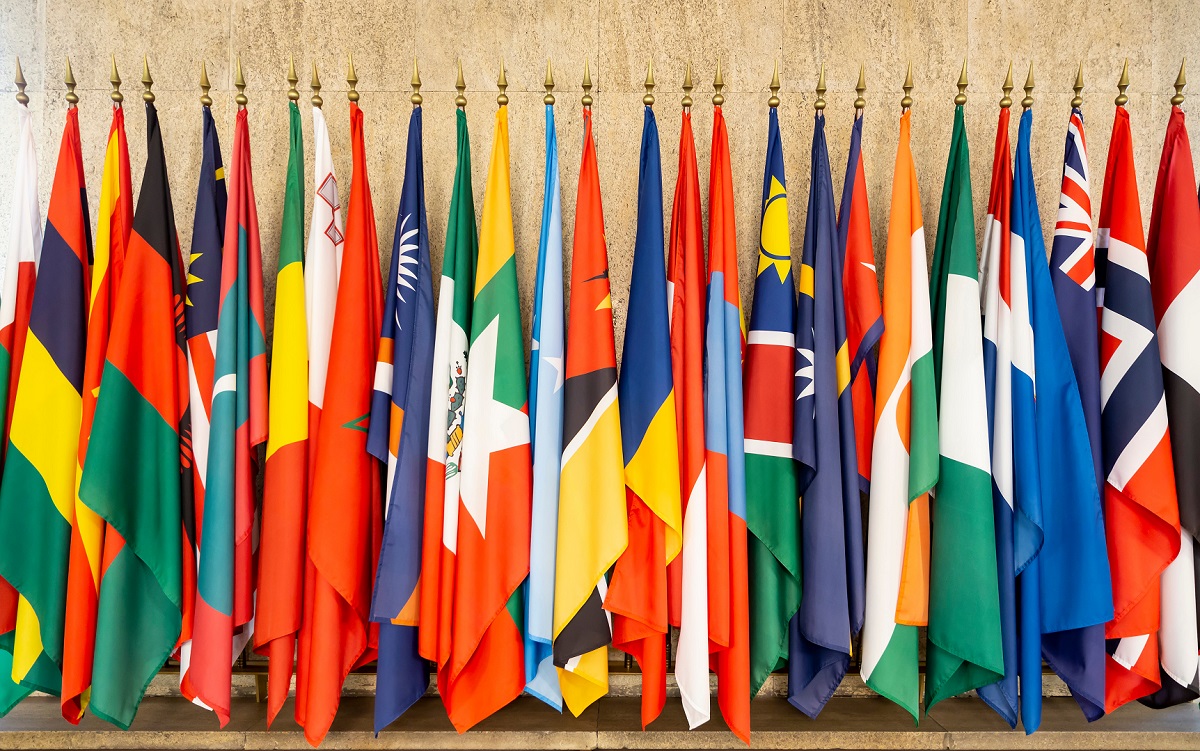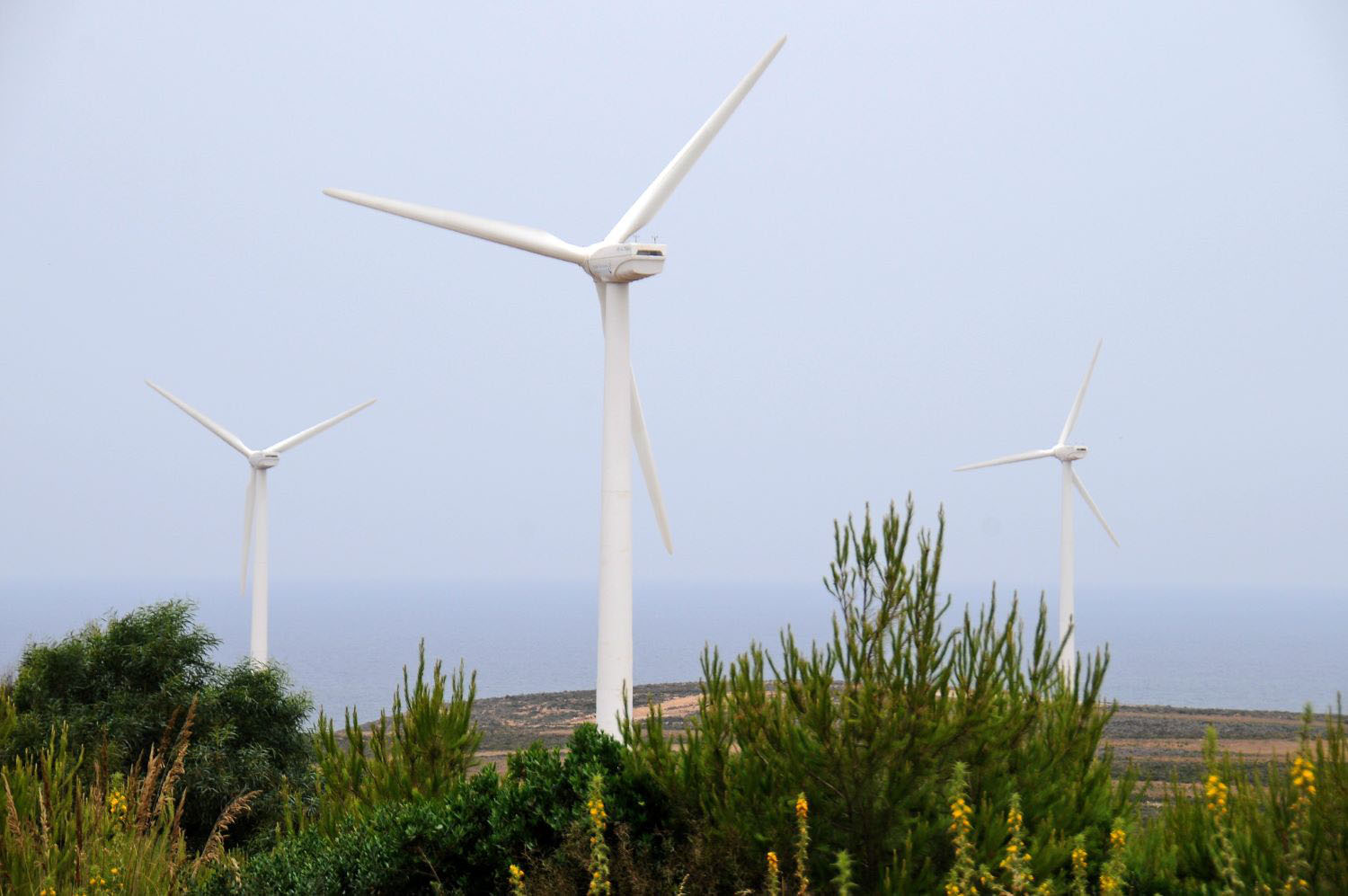Recommended
Questions concerning the relevance and reform of official development assistance (ODA), and how ODA and broader development finance could—or should—change to better reflect shifting demands are not new, with academics and policymakers suggesting a range of options for reform. In this background note, we briefly review the major reform proposals from 2009 onwards, highlighting the key issues underlying approaches to ODA reforms, and the main “types” of proposals typically put forward. The data presented in this note is sourced from analysis of 15 proposals, which are summarized in Annex 1 in the PDF version of this note.[i]
What issues do reform proposals aim to address?
Broadly, proposals related to the reform and future of ODA have tended to address two key questions, which respond to major changes in the development landscape over the last two decades.
The first - and most common - question explored in current reform proposals asks whether ODA should be used to finance global public goods? Based on the understanding that tackling global challenges—such as climate change, peace and security, and infectious diseases—alongside human and economic development will be critical to achieving the Sustainable Development Goals (SDGs), several proposals offered approaches aimed at overcoming the tension between the objective of ODA (i.e. to support the welfare of developing countries) and the non-excludable nature of GPGs, which makes it difficult to ensure that the primary beneficiaries are developing countries. Put simply, at the core of this issue is the question of “who benefits” from ODA spent on GPGs, and whether funding GPGs that also benefit donor countries is an effective use of scarce ODA resources. The issue is further complicated by the understanding that the benefit to developing countries likely differs across different types of GPGs – consider that investment in a malaria vaccine may have a more direct benefit to developing countries than existential asteroid protection - raising questions about which GPGs, if any, should receive ODA funding.[ii] At the same time, the limited nature of ODA has sparked concerns that allocating ODA to provide GPGs could involve trade-offs with other developmental priorities, particularly if volumes of ODA are stagnant. While it is broadly recognized that global public bads can exacerbate poverty if left unchecked,[iii] whether ODA is the right resource for funding GPGs remains a key point of debate.
The second question commonly addressed in ODA reform proposals relates to the continued relevance of ODA as a metric for measuring development effort, or what should replace it, particularly in a landscape where the range of providers, cooperation instruments, and development challenges are rapidly changing. Part of the challenge is undoubtedly linked to the recognition that in the SDG era, “beyond ODA” finance will be necessary to meaningfully tackle the range of global and local development challenges that define the 2030 Agenda, raising questions about the continued relevance of ODA in a context where it accounts for a smaller share of the finance offered and needed. Recognition of ODA’s declining hegemony has already led to the emergence of alternative measures of development finance aimed at capturing flows for sustainable development offered from diverse providers, such as Total Official Support for Sustainable Development (TOSSD). At the same time, however, the debate about ODA’s continued relevance includes voices which highlight ODA’s unique properties – namely, its concessionality and development orientation – and ask how best to harness or target limited ODA resources to support poverty reduction, particularly in poor and fragile states. While opinions vary on whether the challenges facing ODA justify its replacement or necessitate refocusing to strengthen its impact, underlying current ODA reform proposals is an understanding of the need to re-think ODA’s role in a changing development landscape.
What types of proposals have been put forward?
Broadly, the range of proposals for the future and reform of ODA (available in Annex 1 in the PDF version of this note) have tended to put forward three main approaches:
1. New “beyond ODA” concept
The majority of the proposals reviewed argued for the establishment of a new development finance concept that included ODA as part of a wider array of financing for development. Often grappling with questions about both the purposes of development finance, as well as which flows, provided by which actors, should count towards national budgetary efforts for development, these proposals tend to either broaden or replace the ODA concept directly.[iv] There is little consensus however, on what should be included in any “beyond ODA” metric, with questions about whether a new concept should only cover public flows, or the broader spectrum of public and private finance.
2. Split concepts which separate ODA from GPG spending
These proposals similarly develop new concepts for measuring and conceptualizing the full range of development finance flows needed to support the SDGs yet argue that there is continued value to the ODA concept, particularly for the poorest countries. As a result, these proposals often suggest a two-pronged or tiered approach, where the full vision for development finance includes either separate financing concepts[v] or differentiated volume targets that separate poverty-focused spending from GPGs.[vi] In these proposals, ODA is typically called upon to support poverty reduction and welfare in poor and fragile states, with some noting the need to refocus and reform ODA to firm-up development orientation and impact.[vii]
3. Universal development commitment
Two of the proposals reviewed put forward a universal approach to development finance. Based on the understanding that the SDGs are shared and global goals, these proposals call on all countries – regardless of income level – to contribute finance for sustainable development, either according to their ability,[viii] or based on a target scaled by income level.[ix]
Re-focus or re-think ODA? Practical implications of major reform proposals
The range of reform proposals presented highlights a spectrum of ambition for the future of ODA based on the degree to which options require new financing or governance structures for managing resources for sustainable development. On one hand, approaches that start from efforts to refocus ODA and clarify its role vis-à-vis GPGs are necessarily simpler, as they fundamentally rely on the ODA measurement and governance systems that are currently in place. In these cases, reforms seemingly work within the current ODA system to improve quality through refocusing on the comparative advantage of ODA, while seeking to better leverage and enable non-ODA flows to support GPG provision. A key question, however, is whether reforms designed to bring clarity to ODA go far enough towards solving the incentive-based problems that have led to concerns over a dilution in ODA quality (i.e. need to increase what “counts” and the donor-only governance of ODA), as well as towards broadening the inclusivity of development finance governance in line with a shifting global order. How and whether these issues are addressed could affect buy-in and uptake of proposed approaches. At the same time, the emphasis on re-focusing ODA raises questions about how and whether such reforms intend to affect the quantity of finance for sustainable development, alongside efforts to improve overall quality. While calls to increase development finance through public budgets could be difficult to mobilize at a time when many DAC members are announcing budgetary cuts,[x] it may be helpful to clarify whether and how these proposals enable a more effective utilization ODA, and other finance, to advance the SDGs.
On the other hand, approaches that call for a more ambitious reform agenda – including creating a new financing concept or agreeing to a universal commitment, both of which will require broad consensus and presumably an investment in creating new governance structures – will likely involve a much greater political effort. Not only will such approaches require achieving technical consensus on accounting approaches across a diverse range of actors – including on flows like South-South cooperation which currently lack systematic measurement standards[xi] – but will also require re-thinking or inventing inclusive governance structures to facilitate norm and standard setting and to measure finance volumes over the longer term. This will be no small feat, with current spaces for collaboration across DAC and non-DAC actors—namely the Global Partnership for Effective Development Cooperation and Development Cooperation Forum—routinely struggling to maintain engagement and foster meaningful cooperation.[xii] At the same time, beyond the complex political realities of building inclusive development structures and reaching broad consensus on the future of development finance, the emphasis on generating new finance through several proposals – particularly universal commitments – raises serious questions about the political incentives for uptake. Indeed, it may be difficult to incentivize low-income countries to contribute to sustainable development finance when DAC members have routinely fallen-short of past commitments, including on 0.7% ODA/GNI and climate finance.[xiii] Yet despite such challenges, these ambitious reform proposals offer approaches that may meaningfully break from the “North-South” development paradigm through concerted attempts to build shared development finance standards that better reflect diverse perspectives and the differentiated approaches that exist in today’s development system.
Towards a new development consensus?
While there is no shortage of ideas for how ODA could be reformed – or replaced – to help raise and target funding for sustainable development, the big challenge ahead involves finding an approach that generates broad agreement and can encourage collective action to advance the SDGs. At this juncture, it will be critical that any path forward tries to correct for the challenges and lessons learned through the experience of ODA, including by developing a more inclusive approach to governance and negotiation that accounts for the perspectives of recipient countries. In a rapidly changing world order, there is no uncertainty that a new approach to development finance is needed to clarify the conceptual and financial ambiguity around achieving the broad-based SDGs, the challenge however, will be building consensus in a complex political landscape.
Sources
Bakker, Age. “How Can Development Co-operation Address Global Challenges.” In Development Co-operation Report 2014: Mobilising Resources for Sustainable Development. Paris: OECD Publishing, 2014. https://doi.org/10.1787/dcr-2014-21-en.
Bollag, Burton. “How Germany is cutting billions from foreign aid.” Devex, February 2024. https://www.devex.com/news/how-germany-is-cutting-billions-from-foreign-aid-107055;
Calleja, Rachael, Sara Casadevall Bellés, and Beata Cichocka. “Exploring Barriers and Opportunities for Deepening Cooperation across DAC and Non-DAC Providers.” CGD Policy Paper 321. London: Center for Global Development, 2024. https://www.cgdev.org/sites/default/files/exploring-barriers-and-opportunities-deepening-cooperation-across-dac-and-non-dac.pdf
Focus 2030. “France Reneges on its Official Development Assistance Commitments.” News, February 2024. https://focus2030.org/France-reneges-on-its-Official-Development-Assistance-commitments;
Glennie, Jonathan. The Future of Aid: Global Public Investment. 1st ed. London: Routledge, 2020. eBook. DOI: 10.4324/9780429356384.
Hivert, Anne-Françoise. “Sweden lowers its targets for development aid,” Le Monde, March 2023. https://www.lemonde.fr/en/international/article/2023/03/17/sweden-lowers-its-targets-for-development-aid_6019762_4.html
Hallegatte, Stephane et al. Shock Waves: Managing the Impacts of Climate Change on Poverty. Washington, DC: World Bank, 2016. https://documents1.worldbank.org/curated/en/260011486755946625/pdf/Shock-waves-managing-the-impacts-of-climate-change-on-poverty.pdf
Jing, Yijia, Alvaro Mendez, and Yu Zheng, eds. New Development Assistance: Emerging Economies and the New Landscape of Development Assistance. Singapore: Palgrave Macmillan, 2019. https://link.springer.com/book/10.1007/978-981-13-7232-2
Kenny, Charles. “ODA and Global Public Goods: Aid Allocation in a New Era.” CGD Policy Paper 188. Washington DC: Center for Global Development, 2020. https://www.cgdev.org/sites/default/files/PP188-Kenny-ODA-GPGs-Full.pdf.
Klingebiel, Stephan. “Global Public Investment: A Critique.” Devpolicy Blog, The Development Policy Centre, October 23, 2023. https://devpolicy.org/global-public-investment-critique-20231023/.
Melonio, Thomas, Jean-David Naudet, and Rémy Rioux. “Official Development Assistance at the Age of Consequences.” AFD Policy Papers no. 11, 2022. https://www.cairn-int.info/journal-afd-policy-papers-2022-11-page-1.htm
Rodamar, Jeffery. “There Ought to Be a Law! Campbell versus Goodhart.” Significance 15 (2018): 9-9. https://doi.org/10.1111/j.1740-9713.2018.01205.x.
Rogerson, Andrew and Euan Ritchie. “ODA in Turmoil: A Challenge for a New Development Cooperation Landscape?” CGD Policy Paper 198. London: Center for Global Development, 2020. https://www.cgdev.org/sites/default/files/PP198-Ritchie-Rogerson-ODA-Turmoil.pdf.
Sending, Ole Jacob, Dan Banik et al. “Investing in a common future: A new framework for development policy.” Oslo, The Norwegian Ministry of Foreign Affairs, 2023. https://www.regjeringen.no/en/dokumenter/investing-in-a-common-future/id2977341/
Severino, Jean-Michel, and Olivier Ray. “The End of ODA: Death and Rebirth of a Global Public Policy.” CGD Working Paper 167. London: Center for Global Development, 2009. https://www.cgdev.org/publication/end-oda-death-and-rebirth-global-public-policy-working-paper-167.
Sumner, Andy, Nilima Gulrajani, Myles Wickstead, and Jonathan Glennie. “A Proposal for a New Universal Development Commitment.” Global Policy 11 (2020): 478-485. https://doi.org/10.1111/1758-5899.12844.
Sumner, Andy, and Richard Mallett. The Future of Foreign Aid: Development Cooperation and the New Geography of Global Poverty. London: Palgrave Pivot, 2013. https://doi.org/10.1057/9781137298881.
UNCTAD. International Expert Meeting on the Framework to Measure South-South Cooperation, July 11-13, 2023. https://unctad.org/system/files/non-official-document/20230711-13_SSCBrazil_FinalReport.pdf.
Vanheukelomet, Jan et al. “Reporting on Development: ODA and Financing for Development – Final Report for the Netherlands Ministry of Foreign Affairs and the German Federal Ministry for Economic Cooperation and Development.” Maastricht: ECDPM, 2012. https://ecdpm.org/work/reporting-on-development-oda-and-financing-for-development-final-report-for-the-the-netherlands-ministry-of-foreign-affairs-and.
[i] We excluded proposals related to reforming specific types of ODA measurement (such as to refining measures of technical assistance); calling for the implementation of grant equivalents, which has now been completed; proposed models for aid allocation, which do not question the measure itself but how it is distributed; and proposals focused exclusively on governance arrangements for development finance.
[ii] Charles Kenny, “ODA and Global Public Goods: Aid Allocation in a New Era,” CGD Policy Paper 188, (Washington DC: Center for Global Development, 2020) https://www.cgdev.org/sites/default/files/PP188-Kenny-ODA-GPGs-Full.pdf.
[iii] By some estimates, climate change alone could push an additional 100 million people into extreme poverty by 2030, see Stephane Hallegatte et al., Shock Waves: Managing the Impacts of Climate Change on Poverty (Washington, DC: World Bank, 2016).
[iv] See: Jean-Michel Severino and Olivier Ray, “The End of ODA: Death and Rebirth of a Global Public Policy,” CGD Working Paper 167 (London: Center for Global Development, 2009) https://www.cgdev.org/publication/end-oda-death-and-rebirth-global-public-policy-working-paper-167; Jan Vanheukelomet et al., “Reporting on Development: ODA and Financing for Development – Final Report for The Netherlands Ministry of Foreign Affairs and the German Federal Ministry for Economic Cooperation and Development,” ECDPM, 2012, https://ecdpm.org/work/reporting-on-development-oda-and-financing-for-development-final-report-for-the-the-netherlands-ministry-of-foreign-affairs-and; Andy Sumner and Richard Mallett, The Future of Foreign Aid: Development Cooperation and the New Geography of Global Poverty (London: Palgrave Pivot, 2013) https://doi.org/10.1057/9781137298881 ; Yijia Jing, Alvaro Mendez, and Yu Zheng, New Development Assistance: Emerging Economies and the New Landscape of Development Assistance (Singapore: Palgrave Macmillan, 2019) https://doi.org/10.1007/978-981-13-7232-2.
[v] Thomas Melonio, Jean-David Naudet, and Rémy Rioux, “Official Development Assistance at the Age of Consequences,” AFD Policy Papers no. 11 (2022): 1-43; Ole Jacob Sending, Dan Banik et al., “Investing in a common future: A new framework for development policy” (Oslo: The Norwegian Ministry of Foreign Affairs, 2023), https://www.regjeringen.no/en/dokumenter/investing-in-a-common-future/id2977341/.
[vi] See: Age Bakker, “How Can Development Co-operation Address Global Challenges” in Development Co-operation Report 2014: Mobilising Resources for Sustainable Development (Paris: OECD Publishing, 2014), https://doi.org/10.1787/dcr-2014-21-en ; Euan Ritchie and Andrew Rogerson, “ODA in Turmoil: A Challenge for a New Development Cooperation Landscape?” CGD Policy Paper 198 (London: Center for Global Development, 2020) https://www.cgdev.org/sites/default/files/PP198-Ritchie-Rogerson-ODA-Turmoil.pdf.
[vii] Melonio, Naudet and Rioux, “Official Development Assistance at the Age of Consequences”; Sending, et al., “Investing in a common future: A new framework for development policy.”
[viii] Jonathan Glennie, The Future of Aid: Global Public Investment, 1st ed. (London: Routledge, 2020), eBook, DOI: 10.4324/9780429356384.
[ix] Andy Sumner, Nilima Gulrajani, Myles Wickstead, and Jonathan Glennie, “A Proposal for a New Universal Development Commitment,” Global Policy 11 (2020): 478-485, https://doi.org/10.1111/1758-5899.12844.
[x] See examples from France, Germany, and Sweden, for instance: Focus 2030, “France Reneges on its Official Development Assistance Commitments,” News, February 2024. https://focus2030.org/France-reneges-on-its-Official-Development-Assistance-commitments; https://www.devex.com/news/how-germany-is-cutting-billions-from-foreign-aid-107055; Burton Bollag, “How Germany is cutting billions from foreign aid,” Devex, February 2024, https://www.devex.com/news/how-germany-is-cutting-billions-from-foreign-aid-107055; Anne-Françoise Hivert, “Sweden lowers its targets for development aid,” Le Monde, March 2023. https://www.lemonde.fr/en/international/article/2023/03/17/sweden-lowers-its-targets-for-development-aid_6019762_4.html
[xi] Though, we understand efforts are underway to develop a methodology for South-South measurement. See: UNCTAD, International Expert Meeting on the Framework to Measure South-South Cooperation, July 11-13, 2023, Brazil. https://unctad.org/system/files/non-official-document/20230711-13_SSCBrazil_FinalReport.pdf
[xii] Rachael Calleja, Sara Casadevall Bellés, and Beata Cichocka, “Exploring Barriers and Opportunities for Deepening Cooperation across DAC and Non-DAC Providers,”CGD Policy Paper 321(London: Center for Global Development, 2024). https://www.cgdev.org/sites/default/files/exploring-barriers-and-opportunities-deepening-cooperation-across-dac-and-non-dac.pdf
[xiii] Indeed, we find evidence that such failures have eroded cross-country trust, reducing the likelihood of shared action towards future commitments. See: Calleja, Casadevall Bellés, and Cichocka, “Exploring Barriers and Opportunities for Deepening Cooperation across DAC and Non-DAC Providers.”
Rights & Permissions
You may use and disseminate CGD’s publications under these conditions.
Image credit for social media/web: THINK b / Adobe Stock






